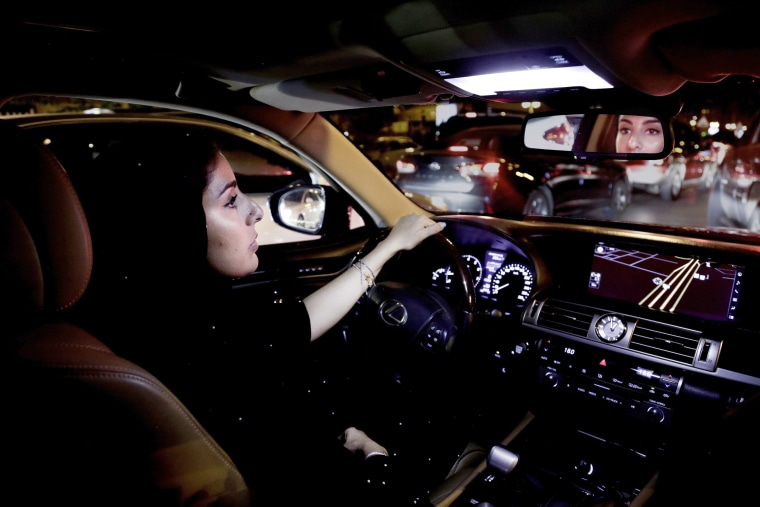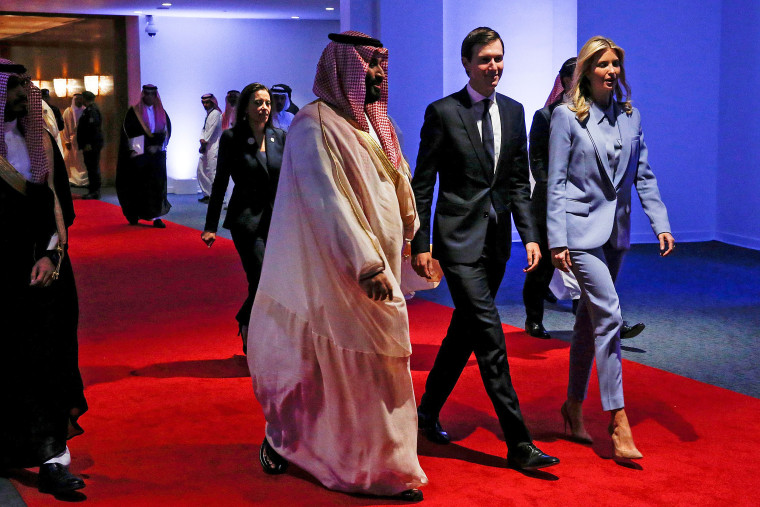Last week, Loujain al-Hathloul, a young activist who fought for women to be allowed to drive in Saudi Arabia, appeared in court to hear that her crime has been deemed equivalent to national security and terrorism cases. Al-Hathloul, 31, hadn’t been seen in person for over a year, while reports trickled out about torture and threats of rape and being “thrown in the sewer.” Her parents, in court, reported that she looked weak, exhausted and shaking. So Saudi authorities have already reduced this vibrant, healthy woman to a quivering sick shell of her former self — but apparently that is still not punishment enough.
So Saudi authorities have already reduced this vibrant woman to a quivering sick shell of her former self — but apparently that is not punishment enough.
Al-Hathloul’s brief court appearance and terrible fate is another reminder of the harrowing plight of women and girls in the Gulf region that is the bleak underbelly of the empowerment feminism myth that prominent women like Ivanka Trump and Hillary Clinton, from opposite political camps, both promote. It is one of millions of otherwise unseen reasons why the World Economic Forum estimates that global gender parity is at still nearly a century away.
Until June 2018, Saudia Arabia was the only country left in the world that forbade women from driving. The religious authorities had long argued that male guardianship laws should prevent women from driving themselves.
Women had been testing that rule since at least 2007 and were routinely arrested. In 2011, inspired by the Arab Spring, Manal Al-Sharif led another wave of protest. Al-Hathloul belonged to a third wave of activists, who were ordered by the Saudi authorities not to talk to the media and arrested for doing so, even after the kingdom had relented and started issuing driver's licenses.
But Al-Hathloul has been in prison since December 2018, while others have been released. It is highly possible she is being singled out for especially harsh treatment because of her celebrity. In 2015, CEO Middle East, a regional business magazine, ranked her as one of the 100 most powerful women in the Middle East, and she has been honored by PEN America and named one of Time magzine's 100 most influential people while in prison.

Saudi Arabia kidnapped Al-Hathloul in the United Arab Emirates in March 2018 before throwing her in jail later that year. Kidnapping women is not uncommon among Gulf state leaders. Besides the occasional stories of adult women being snatched out of airports for leaving unhappy family situations, two princesses of Dubai are famously languishing behind palace walls, after their father, Sheikh Mohammed bin Rashid al Maktoum of Dubai, sent security men to pluck one off a street in Britain 20 years ago, and to drag another off a yacht near the coast of India in 2018.
I used to write that I didn’t understand why more leaders in the West don’t stand up to such obvious human rights abuses. After all, when nations have abused other identities group recently — the Rohinga in Myanmar, the Uighurs in China — international condemnation descends.
I used to write that I didn’t understand why more leaders in the West don’t stand up to such obvious human rights abuses.
But the truth is, I do understand what motivates the Western enablement of systematic female disempowerment in the Arabian Gulf monarchies. Ever since these desert kingdoms struck oil and tribal leaders consolidated power, everyone from bankers to weapons manufacturers to liberal institutions like the Sorbonne and NYU to celebrities like Katy Perry, Eva Longoria, Ryan Philippe and others have been attracted to the region’s multitrillion-dollar sovereign wealth funds, all of which are controlled by a few thousand men.
Western men — and women — helped create and now maintain these tiny, fearsomely armed nations with ultra-modern facades, almost never asking, in return, for a modicum of modernity for women or minority groups. As a result, women like Al-Hathloul can be arrested for showing up unmarried and pregnant at hospitals and in Saudi Arabia are under lifetime male guardianship, while in other regional monarchies women must seek male permission to marry and remarry.
The combined values of the sovereign wealth funds of Kuwait, Dubai and Abu Dhabi Saudi Arabia is estimated to be in the trillions of dollars. Almost no one in the world is immune to the power of such concentrated money.
It is maybe a little bit surprising — or rather, disappointing — that elected officials and legal authorities appear similarly impressed. But money works on so many who should be above — the presidents of great Western institutions renowned for tolerance and secular humanism and science have taken their money, including Harvard, Georgetown, Yale and MIT.
Throwing a woman into terrorism court for agitating for the right to drive is a slap in the face to all women. Kidnapping, torturing and jailing with impunity women simply for asking for basic rights has the same effect on women globally that the religious police who beat and harass women have in their home countries. Global silence in response to it is a reminder of all the dark corners everywhere where women can be not just insulted and harassed, but assaulted, locked at home, left uneducated, raped — all because women are, in 2020, still second-class citizens in many countries, including those the U.S. considers friends.
No amount of liberation for women in the West can paper over this fact, as these activities occur over and over again, without objection or economic sanction. For four years, the Trump administration dispensed with asking for anything from Saudi Arabia besides its purchase power for trillions of dollars’ worth of American-made weapons. Will the Biden administration at the least take a public stand for the universal human rights of women like Loujain Al-Hathloul? It is perhaps a naïve hope — but a hope nonetheless.

